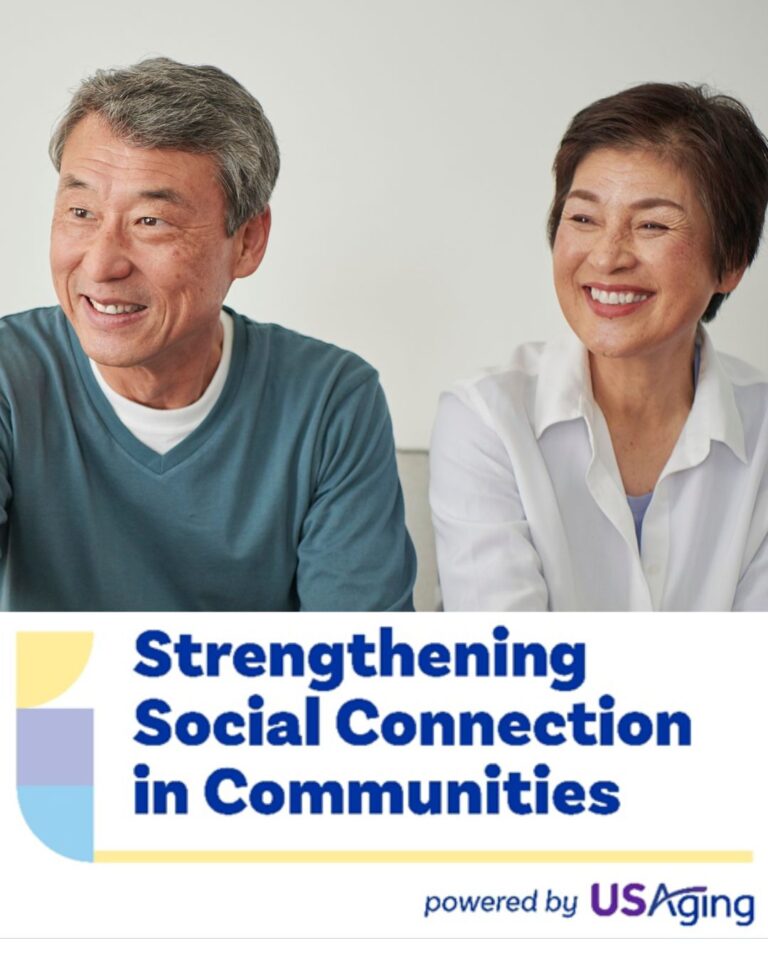By Nora OBrien-Suric, Ph.D.
President

This Saturday, June 15, is World Elder Abuse Awareness Day (WEAAD). Launched by the International Network for the Prevention of Elder Abuse and the World Health Organization at the United Nations, WEAAD raises awareness of abuse—intentional or negligent treatment of older people that causes harm. It’s a day to remember that we all need to understand how elder abuse starts and how to spot and end it.
Part of the solution to confronting elder abuse is simply for each of us to be more vigilant individually, to speak up when we see an older person at risk. But like so many problems facing older adults and other vulnerable people, we also need to think more broadly and collectively about how to prevent elder abuse, and its worst effects, in the first place.
Think of society as a building reinforced by several support beams. When the “health and social” support beam—the one that ensures that we can participate fully in our communities as we age—is shaky or missing, isolation increases. And when we are isolated, we become more vulnerable to abuse and neglect. We can prevent the physical, sexual, emotional, and financial mistreatment and neglect of older people by strengthening community supports, that is, providing the health and social services for them, and their caregivers, that keep our society strong.
Here, at the Health Foundation, we are doing our part by funding an innovative model designed to help hospital emergency departments provide more of this kind of community support, to do a better job at identifying elder abuse victims (and those at risk), addressing the mistreatment, and then connecting these vulnerable older adults to people and groups in their community that can follow up and provide support and resources. Recently, the Foundation’s Trustees approved $38,000 for Eastern Niagara Hospital in Lockport, NY to serve as one of seven national pilot sites to test the feasibility of a promising new approach, the Elder Mistreatment Emergency Department Care Model (EMED).
This is part of a larger, multi-year national effort launched by our colleagues at The John A. Hartford Foundation and the Gordon and Betty Moore Foundation to develop and test this model in emergency departments in hospitals of diverse size, location, and resource levels. This includes assessing the emergency department and its ability to identify and respond to abuse, training staff, using validated screening tools, and providing clear guidance on how to set up a system of referrals. Once this model is fully vetted over 30 months here and across the country, the plan is to refine the components and disseminate EMED more broadly.
EMED is an important initiative because, while it is estimated that one in six older adults experience elder mistreatment in the form of physical, financial, psychological or sexual abuse or neglect, just one in 27 cases are reported. Cognitive and physical impairments, shame, isolation and dependency all impede older adults from coming forward. Emergency departments can help because they disproportionately care for older persons with known risk factors for elder mistreatment. Unfortunately, emergency departments are often unprepared and under-resourced to intervene effectively. We believe EMED can help.
World Elder Abuse Awareness Day provides an opportunity for communities around the world to promote a better understanding of abuse and neglect of older persons by raising awareness of all the diverse factors that lead to this terrible crime. We at the Foundation are proud to renew our commitment to better care for people of all ages and do our part to build communities that keep us safe as we age.


